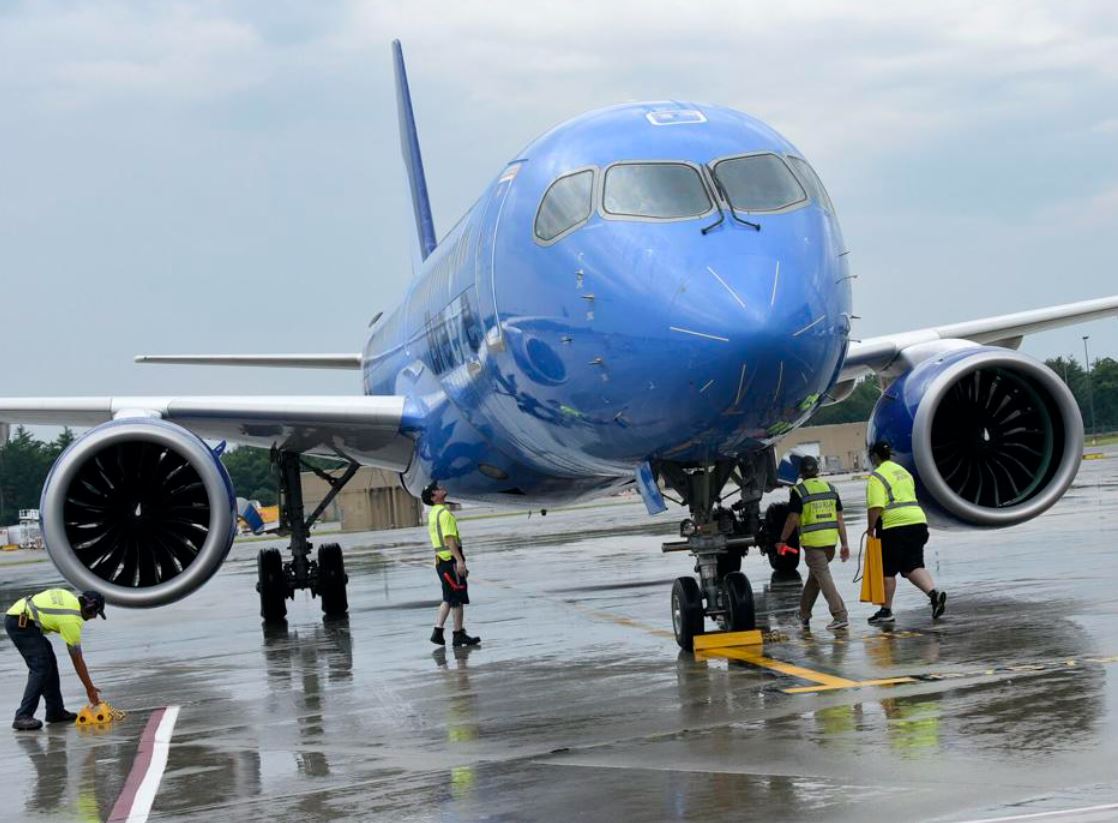The government of Ghana has reaffirmed the government’s commitment to relaunching a national airline, describing it as central to the country’s aspiration to become a key gateway into Africa.
At the official launch of a 10-member National Airline Task Force held at the Ghana Civil Aviation Authority (GCAA) headquarters in Accra, Minister for Transport, Joseph Bukari Nikpe, highlighted that the initiative is not just a business venture but a strategic investment intended to enhance trade, tourism, and regional integration.
“A national airline is vital for any nation that seeks to position itself as an entry point to a continent. It is more than a symbol of national pride it’s an engine for growth and enhanced connectivity,” Mr. Nikpe said.
The initiative comes two decades after the dissolution of Ghana Airways and follows several unfruitful efforts to establish a new national carrier. The current attempt is seen as the most structured to date, led by a formally established task force.
This task force is chaired by experienced aviation executive Charles Asare, with Twumasi-A. Selby as Vice Chairman. The other members include Yvonne Opare, Joyce Bawa Mogtari, Ellis Hugh-Tamakloe, Benjamin Ahlijah, Patricia Bonsu, Stephen Arthur, Daniel Acquah, and Eric Tetteh-Addison, who also acts as Member and Secretary.
Aviation infrastructure
Their responsibilities include finalizing the airline’s business and operational plans, initiating partnerships with technical and financial stakeholders, and ensuring compliance with aviation regulations. The team will also oversee early operations such as recruiting personnel and acquiring aircraft.
Minister Nikpe pointed out that while Ghana has significantly improved its aviation infrastructure in recent years, the lack of a national airline limits the country’s ability to fully benefit from those investments.
“Ghana’s airports are among the best in the region. But in the absence of a national carrier, foreign airlines are reaping the rewards of our infrastructure,” he remarked.
Chairman Charles Asare also assured that the task force is committed to building a commercially viable airline that serves Ghana’s long-term interests. Commentators have suggested that Ghana’s best route forward would be a public-private partnership model, managed professionally and insulated from political interference.
Minister Nikpe emphasized that the airline would not operate as a fully government-owned entity, but rather involve private capital and international expertise. This initiative has received backing from the highest levels of government, including President John Dramani Mahama, who has consistently supported the idea as part of his administration’s broader economic transformation strategy. The Ministry of Transport confirmed that the task force will regularly report its progress to the president and is expected to deliver a full roadmap for the airline’s establishment in the coming months.
Historically, Ghana operated Ghana Airways from 1958 until its collapse in 2004, followed by Ghana International Airlines, which ran from 2005 to 2010 before folding due to similar financial and operational issues. Several subsequent attempts to revive a national carrier through private ventures have also failed to materialize. Operators have attempted to fill the gap – but none have been able to match the scale or brand value of the defunct state carrier.

